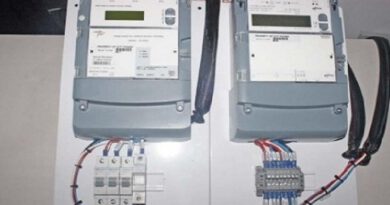Reciprocal agreements for trade protection must go
South Africa’s tariff instruments, aimed at protecting domestic manufacturers, are being blunted and may soon disappear from our trade policy toolbox, warns the latest report on duty investigations.
The role of reciprocal agreements forced on industries in distress by government in exchange for tariff protection seems to be the reason for companies opting out of using them.
The third edition of XA Global Trade Advisors’ Import Duty Investigation Report notes that there has been a precipitous drop in the number of tariff applications lodged with the International Trade Administration Commission (Itac).
Donald MacKay, CEO of XA Global Trade Advisors, says the number of applications has dropped to its lowest level in 10 years. “At times of economic distress, we should see the use of trade policy instruments rising, yet we find the very opposite happening.”
Source: XA’s Import Duty Investigation Report
Minister of Trade, Industry and Competition Ebrahim Patel has referred to his reciprocal agreements as a “bring-and-braai”.
The thinking goes that government does its part by changing the duty, but companies in turn need to make certain commitments to get the concessions.
Peanuts and fillets
Media facilitator Michael Avery called the minister’s concept of “bring-and-braai” and SA’s approach to tariff applications and industrialisation problematic and unfair.
One friend (government) always brings the peanuts while the other (business) has to provide the fillet, Avery noted during the media briefing on XA Global’s report. It is just not fair.
MacKay says there is a long list of reasons why the use of reciprocal agreements is a bad idea in trade policy.
Trade policy cannot be used to fix every social ill in the country. All it can do is help make South African businesses more competitive.
“It cannot compensate for no electricity, broken ports, or stolen railway lines. When businesses are struggling with import competition, they are expected to not only suck it up for years, but to also spend more money before relief is provided.”
Read: New concerns about agreements for protection against anti-dumping
Mike Benfield, CEO of Macsteel, refused to commit to a reciprocal agreement in exchange for a “measly” 10% increase in the import duty on black bar in their bright bar facility.
Bright bar is a high-quality steel used in critical safety applications, bolts and nuts and fasteners.
The company is still waiting for an answer. It is now 32 months since the investigation was initiated.
The waiting game
Itac has repeatedly committed itself to completing tariff and rebate investigations within six months.
The average time it takes to get a final answer (from Patel and the minister of finance) has increased from five months a decade ago to 25 months.
Read:
Huge delays in tariff decisions have ‘chilling effect on investments’
South Africa’s trade investigation process slow and opaque
In exchange for its 10% Macsteel would have had to make a commitment to pass on the benefit to the customer and to not retrench staff in its black bar facility for a certain number of years.
“I cannot commit to that,” says Benfield. “I do not know what the market dynamic will be tomorrow or in six months’ time.”
He adds: “It is only 10% and the market changes continually. You can’t commit contractually to these things when it is a fluid market and prices change. The imported product’s base cost could drop 50% and then the 10% matters not.”
He maintains that reciprocal agreements are illogical. If a country dumps its products in SA, domestic producers must react to remain sustainable. This may require retrenchments. “You have to balance your cheque book. You can’t just lose money day after day.”
Benfield says a 10% increase in the import tariff would of course help. But it is not the be-all and end-all. “I am not waiting for the affirmative answer from government. I am moving on. I have moved on.”
Has he lost his appetite for tariff applications? “Yes, it has put me off because it is taking too long. But as South Africans we have to keep going … We have to keep going.”
Critical base
Protection enables domestic manufacturers to create a critical base that makes them sustainable.
“The duty is not forever – it is [about] allowing the business to settle, find maturity and build a competitive base. Ultimately everybody will benefit. The short-term pain is outweighed by the long-term benefits.”
In Nature’s Garden case the company waited 52 months, only to be told that Patel had rejected its application. Itac has refused to issue the report on the investigation. XA Global Advisors knows that it recommended an increase in duties.
“The reason [for rejecting the application] given by the Minister of Trade is concerns around food inflation, which although legitimate, comes almost five years too late.”
Read:
Local chicken industry finally gets protection from dumping
Price of fries set to rise – a lot
MacKay says they previously asked for reciprocal agreements to be removed for duty reduction applications. “But they simply need to go. They don’t deliver any benefit and definitely add a cost which is not justifiable.”
It is not possible to “compel” economic development, only to incentivise it, he adds.
“We should not expect companies already distressed by load shedding, crime, stolen railway lines and dysfunctional ports to then also make further commitments which are completely disconnected from their economic interests.”
Source: moneyweb.co.za


